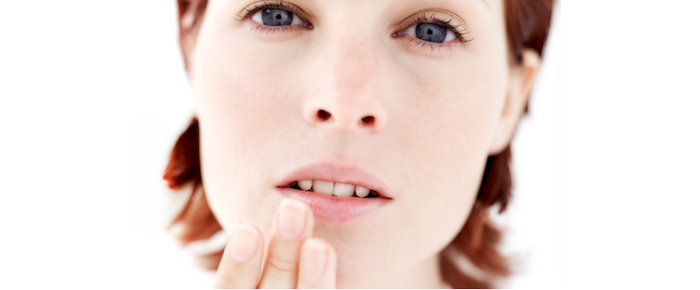
Dear Dr. Kadile, I get painful sores in my mouth several times a year. I’m confused if they are canker sores or cold sores. Is there a difference?
–Joyce, Palm Desert
Joyce, yes, there is a difference.
Canker sores, also called aphthous ulcers, occur inside the mouth.
Women are more likely to get canker sores and the sores generally can appear on the tongue, roof of the mouth, gums or inside of the cheeks. Sometimes a tingling or burning sensation will be felt prior to the appearance of the sores. The sores are usually round, white or gray, with a red border. Severe canker sores may also cause fever and swollen lymph nodes. The exact cause of canker sores is unknown, but stress or local injury to the area, play a role. Certain foods such as citrus or acidic fruits and vegetables can trigger canker sores. Sometimes dental appliances irritating the surrounding oral tissue can also trigger a canker sore outbreak. Canker sores are not contagious.
There is no cure for canker sores, they will resolve on their own in one or two weeks.
There are several over the counter topical gels or ointments that may help relieve the pain of a canker sore. If the pain is too severe, your doctor or dentist may prescribe an ointment or mouth rinse. Natural remedies such as goldenseal, lysine, probiotics or propolis may help with the discomfort and hasten recovery.
Cold sores or fever blisters are caused by the herpes simplex virus and generally occur on the lips and/or the surrounding skin, but can also occur on the gums or roof of the mouth. Cold sores are contagious. Pain and tingling may also occur a few days before the appearance of the lesions. Physical or emotional stress can also trigger a cold sore outbreak. The sores are small fluid filled blisters on a red base. The blisters may sometimes rupture and leak a clear fluid.
Like canker sores, cold sores have no cure and generally resolve on their own in one to two weeks. Over the counter and prescription ointments can be applied to help ease the pain of the lesions. Your doctor can also prescribe oral anti-viral medication that can shorten the duration and severity of the outbreak. Natural remedies such as lysine, lemon balm, propolis and resveratrol can also be beneficial.
Even though the virus that causes cold sores is contagious, an infected person may never develop the lesions.
Dear Dr. Kadile, my baby has thrush. Is it contagious?
–Valerie, Indio
Valerie, thrush is an overgrowth of yeast occurring it the oral cavity. It is common for babies to get thrush because their immune systems are not yet fully developed. If you are generally healthy, then unlikely you would contract thrush from your baby. Adults with weakened immune systems, diabetes or nutritional deficiencies are susceptible to getting thrush.









































